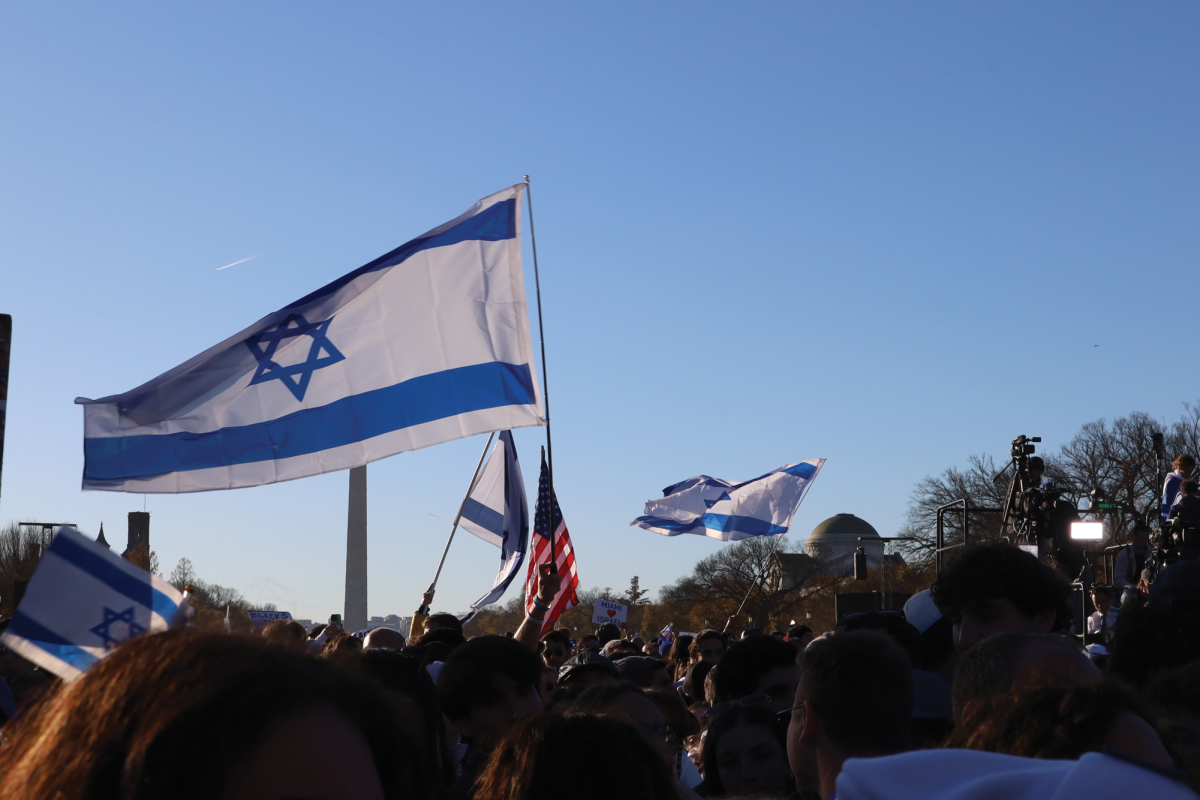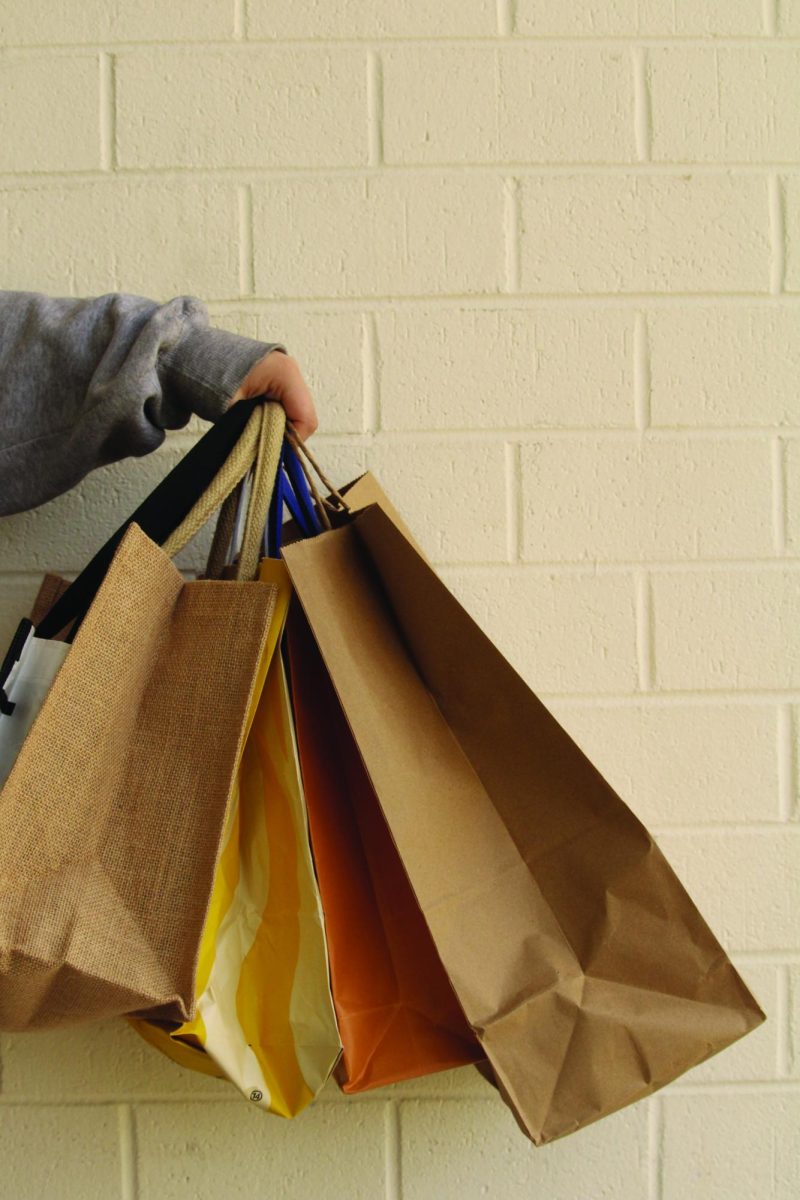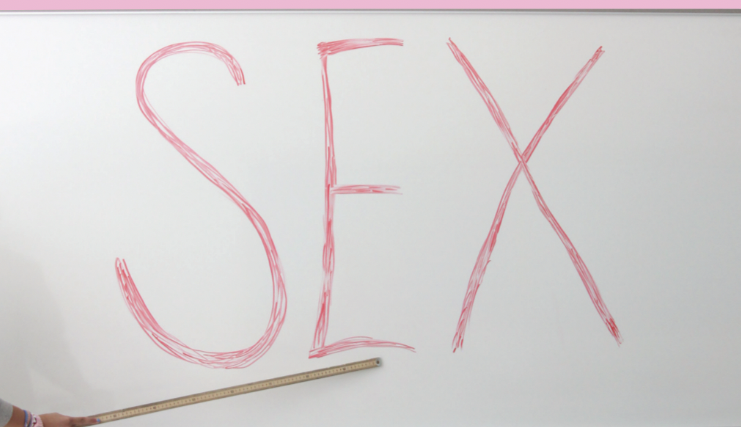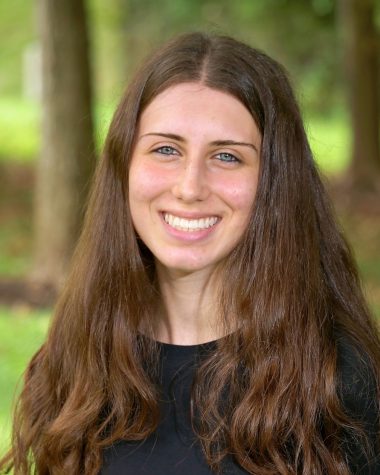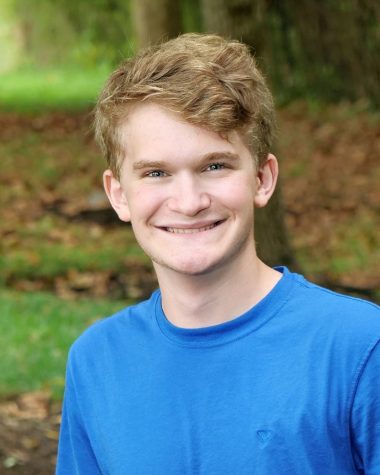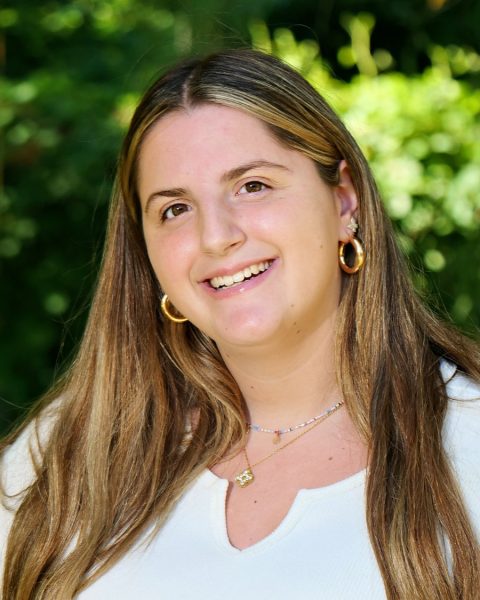rael on Oct. 7, a new sign has greeted Upper School students each morning: “CESJDS Stands in Solidarity With Israel.” JDS’ commitment to supporting Israel in the current war has been constant over the past two months.
For Israeli and Jewish communities, these times have been marked by terror, violence and grief. Hamas’ attacks on Oct. 7, where the most Jews were slaughtered in a single day since the Holocaust, and the subsequent war have significantly impacted the JDS community.
Rise in antisemitism
The Israel-Hamas war has sparked a rise in antisemitism. Among those affected are JDS families, students and teachers.
Antisemitism has been on the rise for the past couple of years, according to the Anti-Defamation League (ADL), but since the war began, there has been a 388% increase in antisemitism in the U.S.
“Since Oct. 7, the ADL has recorded 1,481 antisemitic incidents across the United States,” ADL D.C. Regional Director Meredith Weisel said. “This is everything from incidents of vandalism, harassment and assault directed at Jews or Jewish institutions. We have also seen a tremendous increase in anti-Israel rallies where a subset of them have been especially problematic as they have featured explicit or strong implicit support for Hamas and/or attacks on Israelis and Jews.”
Antisemitism has also spiked in Montgomery County. According to the ADL, there has been a 261% spike in the county.
Junior Shayna Lindauer was a victim of an antisemitic attack on Instagram when one of her followers messaged her, “Kill all the Jews” and “All Jews should die” in response to something she posted on her story in support of Israel.
“It was really shocking to see that from someone who I knew,” Lindauer said. “It makes it all feel a lot closer to home.”
For some students, confrontations with antisemites haven’t only been happening online. On a Saturday afternoon, sophomore Adan Magnas and his friend were walking home from shul when they were stopped by a group of kids hurling antisemitic remarks such as “I wish Hitler killed all you guys,” “big-nosed freaks” and “filthy money lenders.’’
During the confrontation, one of the boys said that he had a gun, and another began to run after Magnas. He managed to escape the altercation without being physically harmed, but he said that the incident still sticks with him.
“It’s important as students and leaders in the community that you continually speak out, share facts and condemn antisemitism wherever it shows up,” Weisel said.
Updated security measures
In response to the events of Oct. 7 and considering the rise in antisemitism, JDS has heightened its campus security, implementing measures such as an increased presence of armed guards, continuing teacher security training and improving the security camera system.
Director of Security and Transportation Shay Halevi is responsible for overseeing these continued security measures. In the context of the current conflict, he believes that the school is as safe as it can be.
“The level of security that we got to was very good to the point where there was nothing that we needed to do but [continue] the good work that we are doing already,” Halevi said. “We are working with law enforcement forces around us, and God forbid if something happens, reaction time would be much faster and more efficient.”
According to Head of School Rabbi Mitchell Malkus, JDS has the ability to increase and decrease the amount of security personnel on campus depending on the threat level.
There has also been stronger enforcement of JDS’ policy of only allowing known visitors into the building. According to Malkus, this went into practice at the Lower School Literacy Night event, where parents needed to show a ticket to attend. If they didn’t have it, they had to wait in line for security to confirm their identity.
“We hadn’t done that as diligently [prior to the war] as we are now,” Malkus said.
This was not the only school event impacted by the Israel-Hamas war. On Oct. 13, which was declared Global Jihad Day by a former Hamas official, JDS canceled classes as a precaution. While the ADL and Secure Community Network said there were no specific credible threats, JDS’ partners at the Israeli Embassy “had a different view,” according to Malkus.
Halevi said that the chance of an attack, specifically targeted at JDS on Global Jihad Day or at any other point, is very slim. Still, he believes that JDS cannot take any risks with the safety of its students and staff.
“[The threat] exists, and that’s why I’m here. That’s why we have police officers and all of the training that we are doing,” Halevi said. “But the chances are very small. Those online posts [and] the social media frenzy about the day of Jihad make us, normal people, anxious. And that’s what terrorism wants.”
Because Global Jihad Day was five days after the Oct. 7 attacks and JDS has a large population of Israeli Embassy students, the administration opted to be vigilant and close the building.
“People were [so] exhausted emotionally after the first couple of days after those attacks that we just said, given this whole thing, we’re going to be abundantly cautious, even though we felt it would have been safe to come to school,” Malkus said.
School programming
JDS has launched numerous in-school activities in light of the war. In the Lower School and middle school, students have participated in a number of volunteer projects, including writing letters to IDF soldiers and furthering an existing connection with a Keshet school in Israel.
“There is actually a video that went up on [the JDS] website of the battalion that received the letters thanking us for getting it,” Malkus said.
High school grade governments have organized fundraisers to donate money to Israel. The senior class presidents arranged a pickleball tournament, which generated over $500.
“We felt it was really important to raise money for Israel while doing something fun so that we could bond during this awful time,” senior class president Yaeli Greenblum said.
In addition, JDS has emphasized educating students, teachers and parents about the war. Outside of their classes, Lower School students are updated on events in Israel twice a month, once during a new whole-school morning meeting and once during Kabbalat Shabbat. The high school held numerous lunch and learn sessions, along with a Teen Summit that was open to anyone, including public school students and parents who were interested in learning more about Israel.
“From an educational point of view, we wanted to make sure the facts were talked about and understood,” High School Principal Dr. Lisa Vardi said.
There has also been increased internal support for Israeli members of the JDS community. A couple weeks after Oct. 7, JDS distributed Shabbat dinners to all of the Israeli faculty and staff. Also, High School Jewish Life Chair Robbie Shorr encouraged all Zman Kodesh leaders to include prayers about Israel during morning services.
“Those first couple of weeks, there was a bit of shell shock,” Vardi said. “Everybody was so shocked and horrified and upset, so what we wanted to [do] is make sure that we felt like we’re a community coming together, definitely holding the Israelis and the Israeli teachers.”
In their show of support for Israel, JDS canceled classes on Nov. 14 to allow teachers and students to attend the March for Israel rally on the National Mall, providing busing to the event. With over 290,000 people in attendance, it marked the largest American Jewish rally in modern history.
“Our thinking was that the rally was a once-in-a-generation type of thing,” Malkus said. “We felt that this was a moment in American Jewish history, as well as just in Jewish history generally, that we wanted to make available to our students and also to our faculty and staff.”
A unique issue the JDS community is navigating is the Irene and Daniel Simpkins Israel Capstone trip. Every year, seniors have the opportunity to attend Alexander Muss High School in Israel for their second semester, but after the war broke out, there has been uncertainty over whether the trip would happen.
After Oct. 7, Muss sent home the groups that were on their campus at the time and started using the dorms to house people who were displaced because of the attack. This led to much uncertainty about future programs at Muss, including for the JDS Israel trip. The JDS administration has kept in frequent contact with Muss and recently stated their commitment to running the trip in an email to the senior class.
“There are three criteria the school is using for the trip,” Malkus said. “Will it be a safe trip? Will we say that it’ll have educational value? Will we be able to do the general things that we normally do on the trip? [Muss] believes, and we agree, that they’re able to meet all of those criteria.”
Because of the uncertainty, JDS has extended the deposit refund period through the middle of January so that families can assess the current situation.
New JDS families
As a result of the war, many families in Israel have reached out to JDS and inquired about temporarily sending their children to school, in order to avoid the violence of the war. Overall, JDS received inquiries for 79 students, and 40 have been temporarily enrolled with tuition waived. As of Dec. 7, 30 students remained at JDS, with many having already returned to Israel.
In order to accommodate these new students and provide them with the necessary support, JDS has hired a new teacher in the Lower School Israel Center, who also supports the English as a Second Language (ESOL) program for the elementary students.
Since most of the new Israeli students enrolled in the Lower School, JDS has not brought in another staff member to the Upper School. However, Malkus said that if it becomes necessary, then they would have the ability to do so.
In the interim, Middle School Jewish Text and Hebrew Teacher Aviva Gershman is serving as the Liaison to Temporary Israeli Families in the Upper School. Her job includes serving as another bilingual point of contact for students at school and their families in Israel along with communicating with teachers ahead of their new students arriving to class.
Gershman volunteered for the position as soon as she heard that JDS would be welcoming students from Israel.
“Things are so unprecedented in terms of how awful the situation is in Israel,” Gershman said. “Everyone is asking themselves, ‘what can we do?’ because we obviously can’t change our reality and we are so busy with our own lives. I felt like this was something that I could do that could actually make a meaningful impact for individual families that are dealing with the current situation.”
In addition, Gershman is staying in touch with the parents and guardians of the incoming students through WhatsApp to make them feel more welcome in the greater JDS and local Israeli communities. Many of the new families have existing connections with JDS or the area, making it an easy fit.
“We are seeing a similar phenomenon in other Jewish Day schools,” Malkus said. “The families are not researching the schools to find the best fit, rather they are going to places where they have a place to live and there is also a day school.”
Jewish Text Chair and high school Jewish text teacher Grace McMillan is helping these students become more acclimated to the new school environment by acting as their temporary advisory teacher. She expressed an interest in helping in any way she could and her gratitude to the school as soon as she found out that JDS was taking in Israeli students.
“We have a wonderful community at JDS, and really, genuinely kind students and faculty, who are all very eager to be supportive and welcoming,” McMillan said. “I love facilitating that and helping to allow these kids to find their place within the school.”
Yali Tal, a student from Israel who joined the senior class, said that the JDS community has been incredibly inclusive.
“I came here a month ago and they immediately accepted me when I came here. I didn’t start out immediately,…and then I started [the week before Thanksgiving],” Tal said. “It was awesome. Everyone accepted me…the experience is awesome.”
While the community has been able to find moments of light in the tragedy, those moments have been brief. The horrific unfoldings of the war and the increase in antisemitism globally and locally continue to loom over the daily mood of the school.
“We are still going about regular school. We’re studying all the same things, we’re having athletic events and competitions, we’re having the play and concerts and all that stuff,” Malkus said. “But I think that there’s sort of an undertone here of, this is a really difficult time in Israel, which is making it a difficult time in the school.”


